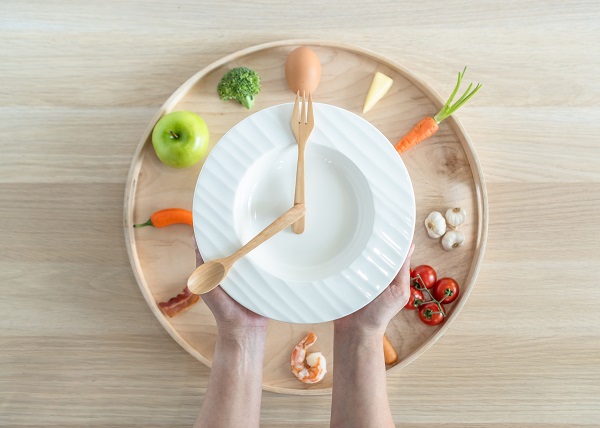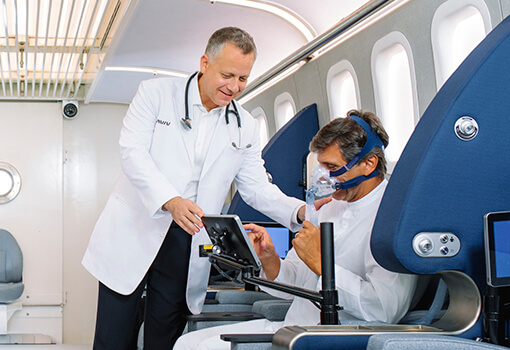
Health is Wealth: 9 Actionable Ways to Invest in Your Health


The daily choices we make and the activities we engage in all impact our quality of life. Here’s the reality—the average person spends nearly $170,000 on medical expenses in their lifetime. Costs tend to stack up, especially after the age of 65.
While we might consider health problems and expenses the norm as we age, there are ways you can minimize them or even avoid them altogether. Why not start today?
At Aviv, we believe making more conscious decisions today will give you the longevity you deserve. We’re here to get you started on the right foot. Consider these nine ways to start investing in your health today and accruing a healthy ROI immediately!
Note: Speak to your doctor before you pursue any lifestyle changes.
1. Consider the MIND Diet
Eating healthy has always been the mantra over the years, and for good reason—it’s the foundation of feeling good. While there are numerous diet trends out there, there is one truly worth your time and investment—the MIND diet.
Mediterranean-DASH Intervention for Neurodegenerative Delay (MIND) diet is a blend of two highly effective diets:
- Mediterranean: Consists of a heart-healthy eating plan
- DASH: Aims to address hypertension or high blood pressure
Sticking to this diet that entails a variety of fruits and vegetables provides anti-inflammatory and cognitive benefits—it can strengthen brain cell structure and help regulate anxiety and mood.

2. Engage in Intermittent Fasting
We know—fasting doesn’t sound like the most exciting thing. But consider intermittent fasting. Not only can you achieve a healthy body composition, but you can also improve your brain health—all without strict dietary restrictions.
Intermittent fasting is a dietary lifestyle that comprises alternating periods of eating and fasting and limiting the number of hours you consume calories during the day or week.
This metabolic switching:
- Enhances the brain’s ability to resist injury and disease
- Slows down the aging and disease process
- Promotes weight loss
3. Stay Educated on Fall Prevention Tactics
Falls in older adults are common. Conditions that become prevalent as we age (e.g., muscle weakness, osteoporosis, and balance and gait problems) make us more susceptible to falls.
The key ingredient to prevention? Exercise. We’re talking about:
- Strength training
- Cardio training
- Balance training
- Flexibility training
Other fall prevention tactics are just as important. They are:
- Keep your home clear of clutter and trip hazards such as cords, books, shoes, etc.).
- Install grab bars in the bathroom and handrails in the hallways and stairways.
- Avoid wearing clothing that drags on the ground.
- Wear non-slip socks or shoes around the house.
- Take a pause after standing up and before beginning to walk.
4. Find Helpful Ways to Cope with Stress
Stress is inevitable in life, and the body and mind are biologically equipped to handle it. But sometimes, when the stress gets overwhelming, it can negatively impact the brain.
Chronic stress can:
- Kill brain cells
- Cause memory decline
- Negatively impact mental health
Whether you are grieving or dealing with a major change in your life, it’s essential to find healthy coping mechanisms for stress:
- Make time for physical activity: At Aviv, we recommend 30 minutes of exercise three days a week at a minimum. Exercise benefits the brain by releasing endorphins, helping relieve pain, and improving mood. The key is to find an activity you enjoy—this will make exercise fun and feel less like a chore.
- Be conscientious about screen time. Regarding technology and brain health, experts say it’s all about quality vs. quantity. When used wisely, technology offers worthy benefits. But using it improperly can cause more harm than good. Thus, stay aware and focus on balancing screen time with other activities.
- Meditate. Not only is meditation a great activity to do instead of “doom scrolling” on your screen, but meditation may also slow the progression of Alzheimer’s and improve brain focus. Consider meditation apps like Headspace and Calm to get started.
5. Focus on Body Composition Instead of Weight
A low number on the bathroom scale doesn’t necessarily mean all is well. Indeed, society’s obsession with the scale can lead to problems like declining muscle mass—a condition that will do more harm than good later in life.
So toss that unhealthy relationship with the bathroom scale. Instead, look at your overall body composition.
For example, Aviv Clinics uses the seca scale to get a precise rundown of the meaning behind a person’s weight. This scale helps us develop an accurate and customized treatment plan—losing body fat, gaining muscle, or a combination of both.
Speak to your doctor to gain a comprehensive assessment of your body composition so you can make appropriate, personalized goals.
6. Stick to a Consistent Sleep Schedule
Since the sleep hormone melatonin naturally decreases with age, it’s vital to set up healthy sleeping habits. This entails turning off all electronics an hour before bedtime and getting in bed at the same time each night.
Doing so will promote natural circadian rhythms and maintain cognitive health.
7. Engage in Games
Investing in your health doesn’t have to be boring, it can include games!
That’s right, researchers report playing brain games can improve cognitive performance. It’s a fun and active way to shake things up for your brain.
Much like muscles build muscle fibers after exercising, the brain functions similarly—it promotes new neurons and neuronal connections after participating in games.
8. Listen to Music
When was the last time you truly listened to music? What kinds of images and memories did it elicit?
Music offers far more advantages than helping you get through a grueling drive or setting the tone for a party. The best part is these benefits are backed by research.
Studies illustrate music can:
- Have a positive impact on those with memory loss conditions (i.e., Alzheimer’s disease, dementia)
- Reduce anxiety, pain, and blood pressure
- Improve sleep quality and mental alertness
9. Find a Research-Backed HBOT Program
Hyperbaric oxygen therapy (HBOT) is a therapy that has a patient breathe 100% pure oxygen in a pressurized chamber.
Several studies illustrate the potential of HBOT, when administered in a specific protocol, in improving cognitive, physical, and psychological performance. In this protocol, oxygen levels are fluctuated during each hyperbaric session. This system increases oxygen levels in the body up to 20 times higher than normal and boosts your brain’s ability to heal itself.
The unique medical program at Aviv consists of a treatment program that can include this same research-backed HBOT protocol along with cognitive training, dietary coaching, and physical performance training, in a physician-designed program tailored to each client’s needs.
This holistic approach gives each patient the personalized care they deserve for their unique health conditions. Our clients have optimized their athletic performance with HBOT and have found relief from debilitating medical conditions such as stroke and traumatic brain injury.

Invest in Your Health at Aviv
The Aviv Medical Program stands by a holistic treatment program that targets all areas discussed above. A series of independent clinical trials illustrate how our program helps treat the symptoms of different health conditions.



